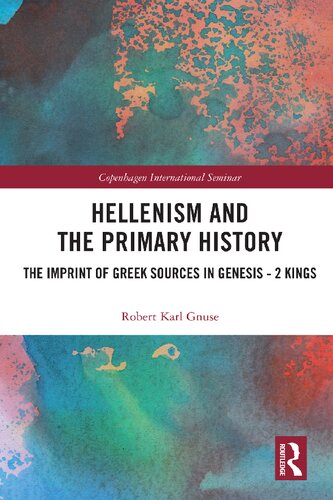

Most ebook files are in PDF format, so you can easily read them using various software such as Foxit Reader or directly on the Google Chrome browser.
Some ebook files are released by publishers in other formats such as .awz, .mobi, .epub, .fb2, etc. You may need to install specific software to read these formats on mobile/PC, such as Calibre.
Please read the tutorial at this link: https://ebookbell.com/faq
We offer FREE conversion to the popular formats you request; however, this may take some time. Therefore, right after payment, please email us, and we will try to provide the service as quickly as possible.
For some exceptional file formats or broken links (if any), please refrain from opening any disputes. Instead, email us first, and we will try to assist within a maximum of 6 hours.
EbookBell Team

0.0
0 reviewsThis collection of essays seeks to demonstrate that many biblical authors deliberately used Classical and Hellenistic Greek texts for inspiration when crafting many of the narratives in the Primary History.
Through detailed analysis of the text, Gnuse contends that there are numerous examples of clear influence from late classical and Hellenistic literature. Deconstructing the biblical and Greek works in parallel, he argues that there are too many similarities in basic theme, meaning, and detail, for them to be accounted for by coincidence or shared ancient tropes. Using this evidence, he suggests that although much of the text may originate from the Persian period, large parts of its final form likely date from the Hellenistic era.
With the help of an original introduction and final chapter, Gnuse pulls his essays together into a coherent collection for the first time. The resultant volume offers a valuable resource for anyone working on the dating of the Hebrew Bible, as well as those working on Hellenism in the ancient Levant more broadly.